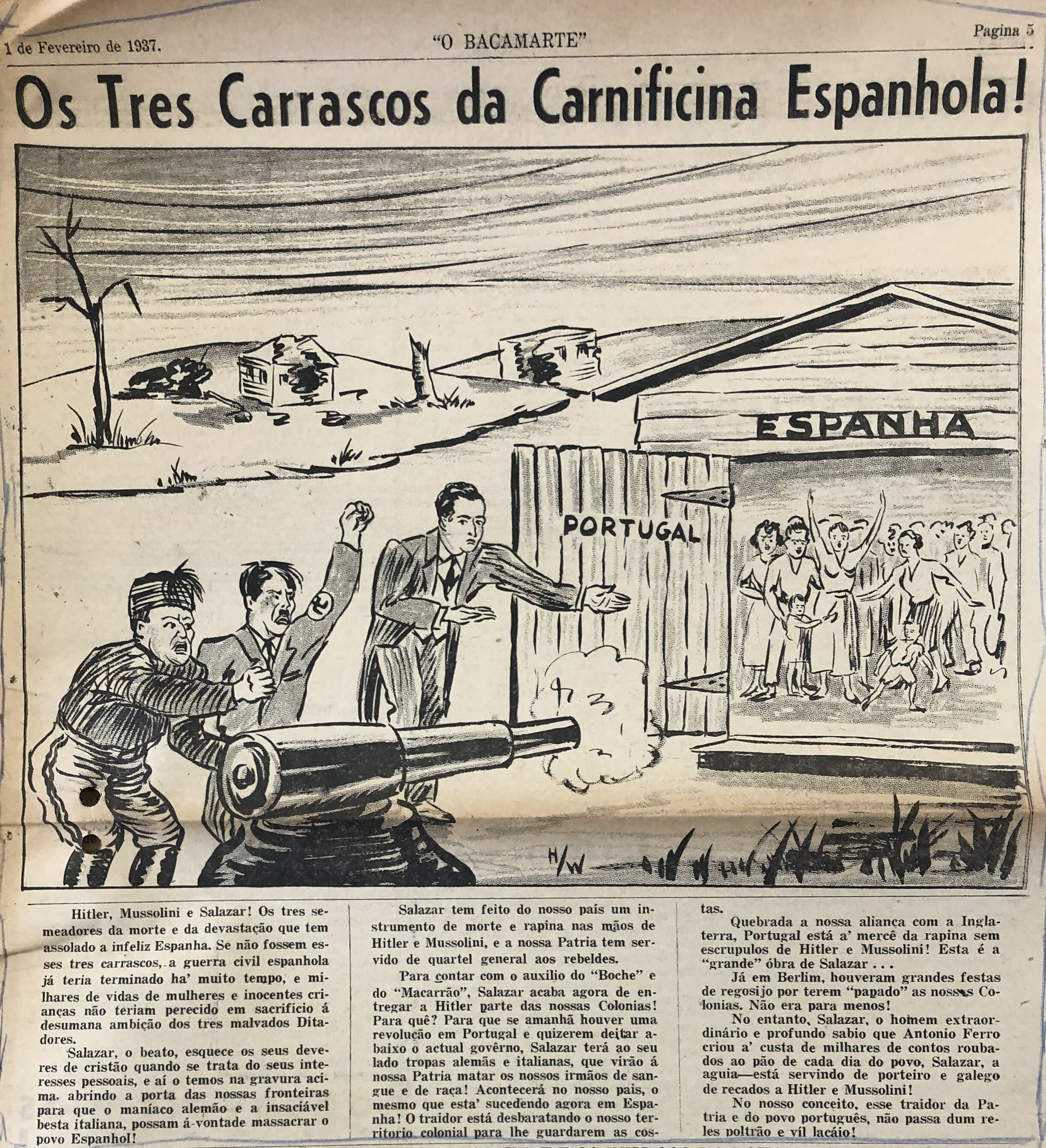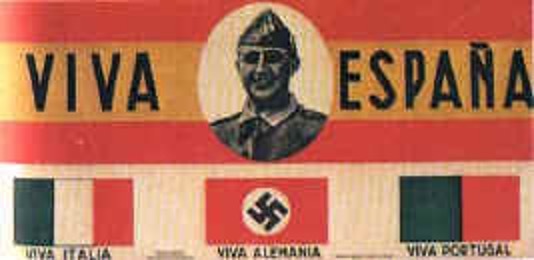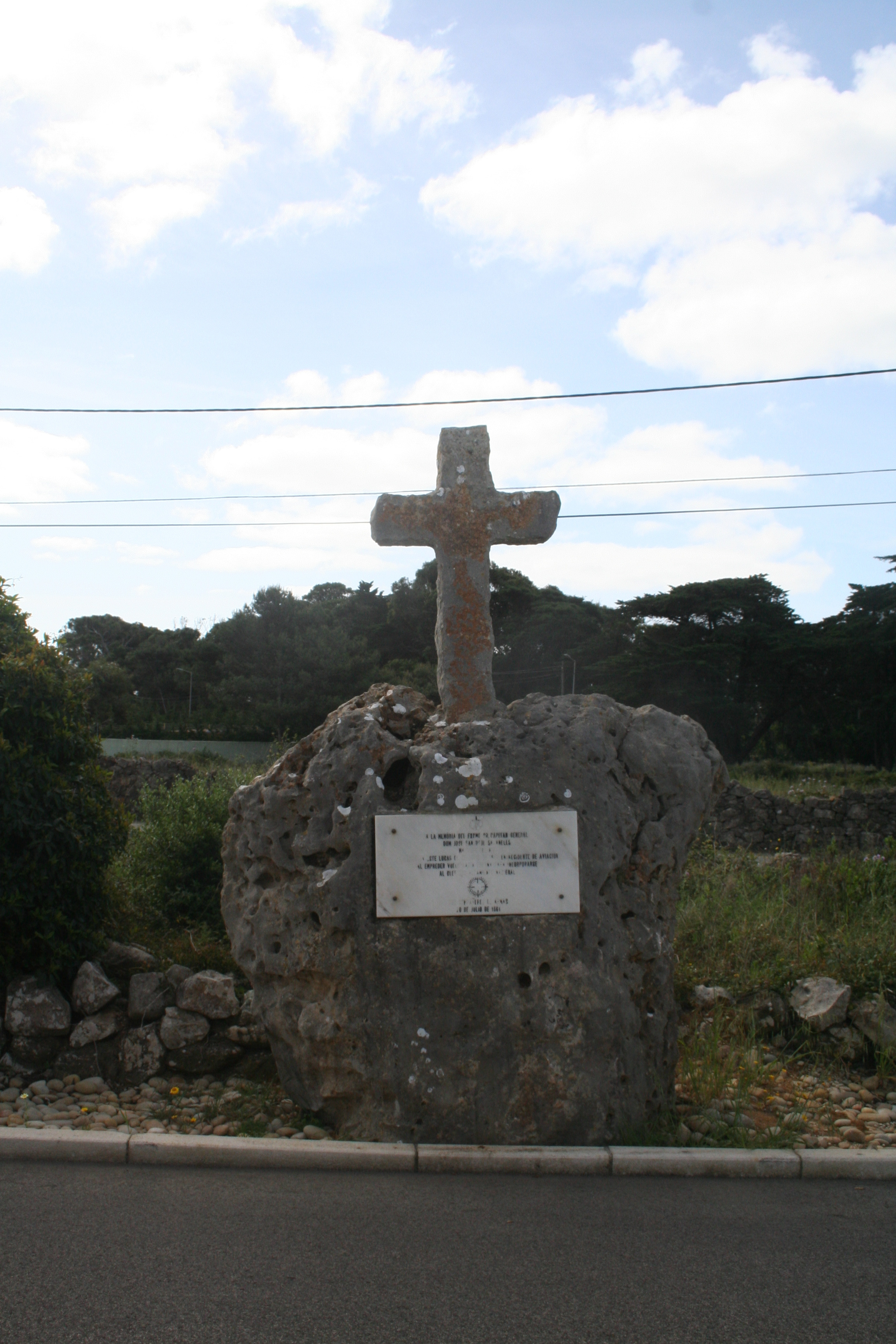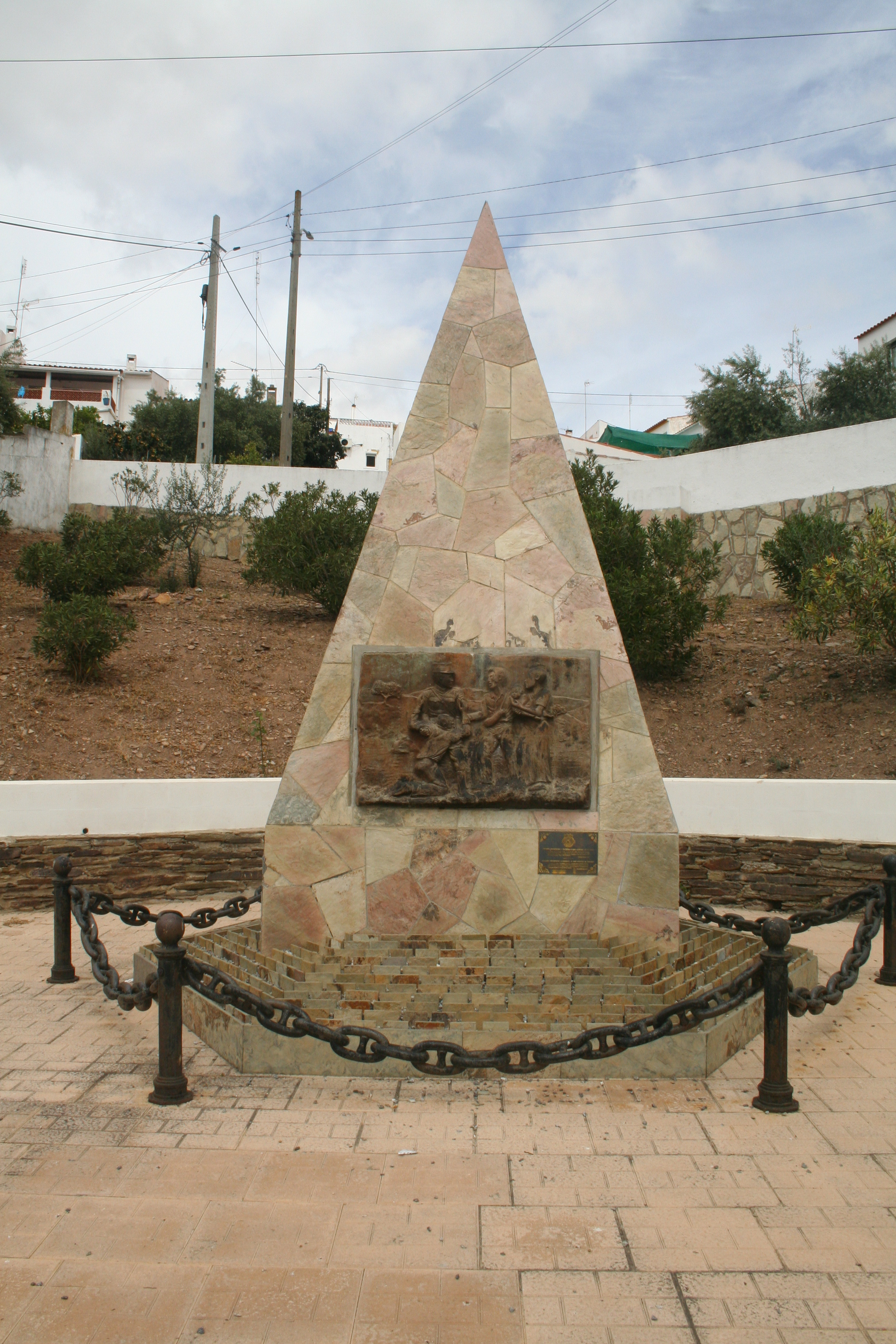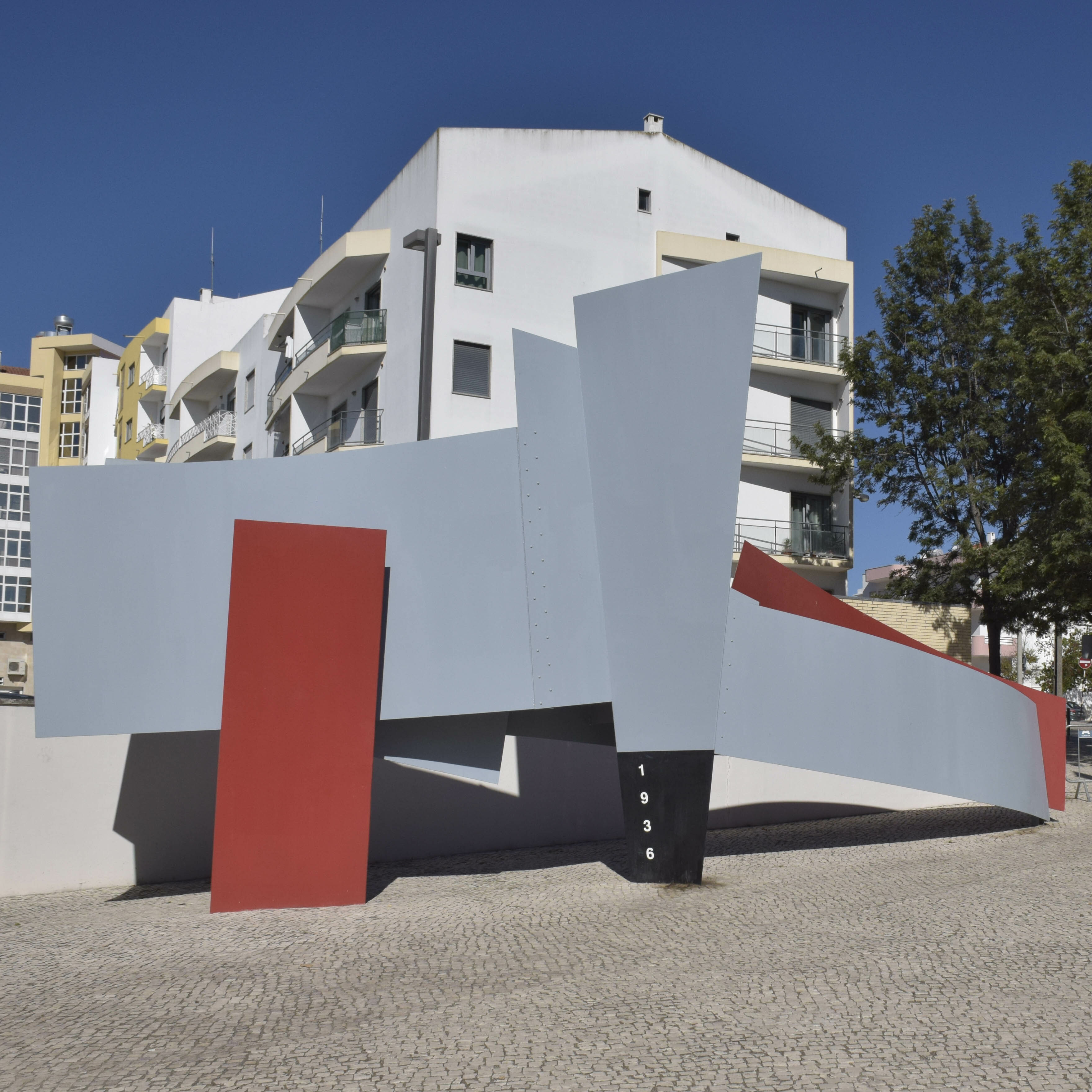It was not just geography alone that dictated that Portugal should be the foreign country most immediately affected by the Spanish Civil War: politics played a part as well. António de Oliveira Salazar’s authoritarian ‘New State’ was deeply implicated in the preparations and support for the Spanish Army’s coup of July 1936, and did what it could, over the coming years, to support General Franco’s military campaign. Spanish refugees of all hues poured over the border in 1936, being received in very different (and sometimes unexpected) ways; Portuguese volunteers were recruited by the insurgents, becoming known, collectively, as the Viriatos; Portuguese newspapers and radio stations became important conduits for Francoist propaganda; and, internationally, Salazar’s government acted in such a way as to protect the insurgents’ interests, notably in the context of the Non-Intervention Committee, in London.
The war in Spain led to a heightening of political tension and violence in Portugal, and saw the New State moving decisively into a more fascistic stance, equipping itself with organizations such as the Legião Portuguesa, a militia formation dedicated to rooting out the regime’s opponents. These too were energized by the Spanish Republic’s resistance, leading to a major revolt within the Portuguese Navy and an attempt on Salazar’s life. Meanwhile, the dictator concentrated even more power in his person – by the end of 1936 Salazar was Prime Minister and Minister of Finance, War and Foreign Affairs. Micromanaging Portuguese diplomacy, Salazar attempted to serve as a reliable intermediary between Spain and the United Kingdom, a role he would continue to perform during the Second World War. There was, of course, no consultation with the country at large over how Portugal should react to events in Spain – but there are important indications of a widespread sympathy towards the embattled republican regime and its supporters.
The New State’s overthrow, in 1974, has made possible not only academic research into the Spanish Civil War’s impact on Portugal, but also the acknowledgement of that popular sympathy for the Spanish Republic. This is true notably at local level, with municipal authorities raising monuments to those who, in Portugal, stood up to the New State and its Spanish policy, in defence of lost freedoms and conveniently forgotten humanitarian values.








